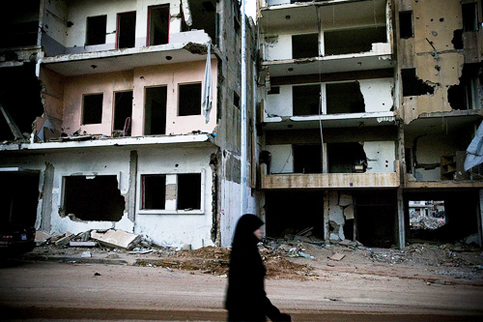Al-Ahram, Azmi Bishara, July 1st, 2009

Photo: Faramarz Hashemi. Tehran admits protests over election results.
Iran does not just have an authoritarian system of government, it has a totalitarian one. It is powerful, highly centralised, with sophisticated administrative and control systems, and it applies an ideology that claims to have answers for everything and that seeks to permeate all aspects of life. Instead of a political party and youth organisations, it relies on mass organisations, such as the Basij, that blend security with ideology and even with the benefit of broad sectors of the populace. It also depends on a broad and well-organised network of mullahs and on a politicised security agency and Revolutionary Guard. However, it differs from other totalitarian systems in two definitive ways.
Firstly, no other totalitarian system has incorporated such a high degree constitutionally codified democratic competition in the ruling order and in its ideology. Political competition is systematised in the form of regularly held elections in which rivals espouse different platforms within the framework of the agreed upon rules of the game, just as do political parties within capitalist frameworks. The difference between Democrats and Republicans in the US is not much greater than that between reformists and conservatives in Iran. Of course, these trends in Iran are not actual political parties, but then neither are the Republicans and Democrats, at least not in the conventional European sense. They are more in the nature of electoral leagues.
(…اكثر)












